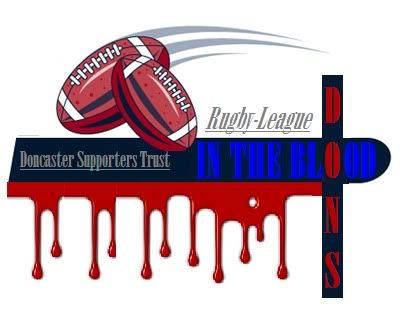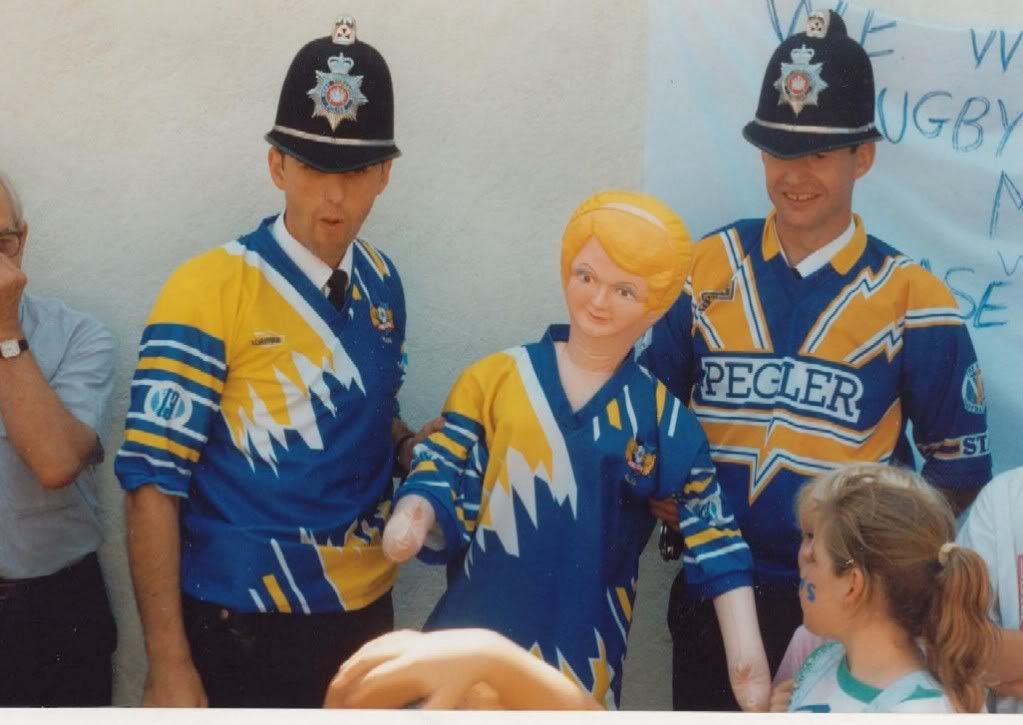Memories From The Past
TATTERSFIELD, the modest home of Doncaster's rugby league side, will be filled once more this afternoon by the 3,000-odd locals who never thought their town would host a Division One fixture. And among those present for the game against Hull will be TonyFisher, the former Great Britain hooker, who coached the Dons to promotion last season and was sacked eight months later. For much of the most eventful year in the club's 43-year history, Fisher has been paid to come to Tattersfield and has sat not in the midst of the crowd but in a front-row pew.
The highest point during a journey on sport's roller-coaster came on 24 April when Doncaster travelled to West Yorkshire to play Batley. Promotion was the reward for the winners, and kick-off was delayed by 15 minutes as Batley's biggest crowd for a decade squeezed in to see. By half-time not a single point was on the board, but in the final quarter, Doncaster scored two tries to win 10-5. Visiting fans flocked on to the pitch, bore the players on their shoulders, and when their heroes had all been delivered to the dressing-room, they stayed and chanted Fisher's name. After 15 minutes the police tried unsuccessfully to budge them, and finally Fisher was persuaded to come out. At the head of the throng, he gave one sweep of his arm and they were quiet. "I'd seen Bill Shankly do that," he recalls, "but I never thought I'd do it myself."
That the euphoria took a considerable time to subside is not surprising. For 12 of their 43 years, the Dons had finished bottom of the league, and for most of the other 30, they were the whipping boys. After a record run of 40 defeats in the 1970s, theirstatus as the biggest jokes in the game became official when a documentary, Another Bloody Sunday, was filmed so they would not be forgotten.
So Fisher's achievement certainly stirred the town. His reputation as one of the game's hard men had spilled over into his coaching style where he was aggressive and demanding and proved inspirational as a motivator. John Sheridan, the club's director offootball, says he has not seen anyone since the former Britain coach Mal Reilly stir a team in such a way, and he was so impressed with the signings that Fisher made in the summer of 1993 that he laid £10 on them at odds of 100-1 to win promotion to theFirst Division.
At the start of 1994, the new outfit started to gel and one of the fresh faces, Jamie Bloem, the South African full-back, led them on the first of two runs of eight consecutive victories. The second ended at Rochdale, but the following weekend the Dons rolled up at Batley and Sheridan collected his £1,000. "When Tony first approached me," says Sonny Whakarau, one of the three New Zealanders who arrived the previous summer, "I thought 'Little old Doncaster, Jeez'. But he told me his big plans and it's like a fairy-tale come true."
Outside town, few gave them much chance of surviving in the top flight, but come August, the fairy-tale endured. On the season's opening Sunday, they won 29-20 at St Helens and, five days later, having beaten Widnes 21-6, they spent 48 hours looking downon Wigan and the rest on top of the league.
All of which served to overshadow a deep financial crisis. In July, a winding-up order had been narrowly avoided, and despite the increased gates and sponsorship which came with promotion, the debts of more than £1m with which the club started the seasonhave not decreased, largely because £200,000 has been spent on the 20 players who have joined the club since April. In early October, before the home game against Halifax, the club were unable to pay the players, but Fisher stood by his men, voicing their objections to John Desmond, the club chairman.
Without him, there would be no rugby league in Doncaster - he came to the club's rescue in 1986 and is himself owed £800,000. "But as the weeks passed by in the autumn," Fisher says, "his integrity left a lot to be desired." Desmond, however, claims that Fisher did not stop at demanding wages, but badgered him for cash to widen the player pool further.
The Halifax game ended in a disastrous 72-0 defeat. Fisher managed to restore team spirit, but worse was to come on 29 November when Bloem, still the club's outstanding player, was found guilty of taking steroids and was given a two-year ban. His team-mates were not universally surprised. "I actually knew he was taking them and it was generally a case of 'keep your lips sealed'," Whakarau says. "He had been playing on a different plane. He was like a never-ending battery."
Bloem had brought shame on the club by being the first player in Britain to be found guilty of such an offence. At Warrington five days later, they were greeted by home fans with chants of "Donny, Donny, Where are your drugs?"; Doncaster were defeated 44-14, the whipping boys again.
Just when the club needed a boost, they lost the man most capable of giving it. From his office in Castleford, Desmond dispatched a member of staff to deliver a letter to Fisher's house in Bradford informing him that he had been sacked. The shock waves were felt throughout the club, as no one had the remotest idea it was coming. "It was like hearing that someone who you were only talking to five minutes previously, had just died," said Ian Brooke, Fisher's assistant, who took over as coach the followingday but worried, at the time, that his head would be next.
At Brooke's request, Desmond attended the team's next training session and explained what had happened as a character clash. "If we had let Tony have his head, the club would have gone to the wall," he explained later. This was just enough to appease theplayers. "There was some isolated talk about us not playing as a protest," says Whakarau, "but it didn't get very far."
Two days later, watched by Fisher, they did take to the field, and while they were going down to a 28-14 defeat at Wakefield, Fisher's name was chanted by the travelling fans, just as they did on Boxing Day, when they were beaten 30-22 at Sheffield. Theynow lie one point off the bottom of Division One. "Ian has got the hardest job in the game at the moment," Sheridan says. "Tony was so well liked that if we lose a couple more games, the fans will take everything out on him."
The future is still unsettled. An administrator has taken over the running of the club; Rocky Turner, the captain, has quit, ostensibly to give more time to his business, but also because he was tired of not being paid, and Bloem is back in town, planning to tour local schools to speak out against drug abuse and also to appeal against the ban which drug abuse brought him.
Characteristically, Fisher is fighting on. He claims he is owed £11,700 by the club and says he is putting together a consortium to take it over. Meanwhile, six days before Christmas, he went to Bradford to sign on the dole for the first time in his life. And that, he says, was almost as unforgettable as that day in April at Batley. |


















